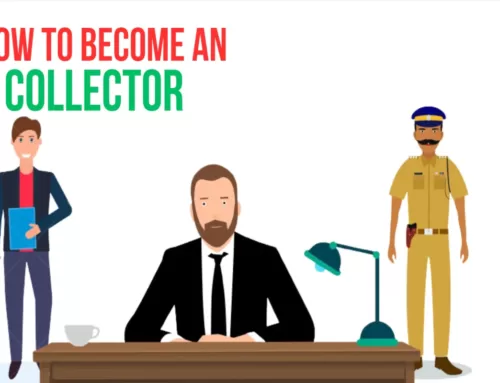If you’re considering a career in plumbing, this comprehensive guide is perfect for you.
We’ll explore everything you need to know about becoming a plumber and how to become a licensed plumber, including roles and responsibilities, essential skills, qualifications, and salary expectations like average plumber salary and master plumber salary.
Discover how much a plumber can make and the requirements to become a plumber, as we delve into the steps towards a fulfilling and successful career in this high-demand field.
By learning how plumbing works and understanding the ins and outs of this profession, you’ll be better prepared to embark on an exciting journey towards becoming a skilled plumber.
Who is a Plumber?
A plumber is a skilled professional responsible for installing, maintaining, and repairing plumbing systems in residential, commercial, and industrial settings. Their crucial role ensures the efficient functioning of water supply, drainage, and waste disposal systems, contributing to the overall health, safety, and comfort of communities.
Roles and Responsibilities of a Plumber:
Plumbers have various duties depending on the job, which generally include:
- Reading and interpreting blueprints, technical specifications, and building codes
- Installing and repairing pipes, fixtures, and appliances
- Troubleshooting and resolving leaks, clogs, and other plumbing issues
- Performing regular maintenance and inspections
- Ensuring compliance with local regulations and safety standards
- Collaborating with other construction professionals on projects
- Providing excellent customer service and building long-term relationships with clients
Skills Required to Become a Plumber:
A successful plumber possesses a diverse set of skills, such as:
- Effective problem-solving and critical-thinking abilities
- Technical knowledge of plumbing systems, materials, and tools
- Manual dexterity, physical endurance, and the ability to work in confined spaces
- Strong communication, customer service, and interpersonal skills
- Attention to detail, organization, and a commitment to safety and quality
Plumber Job Requirements:
To become a plumber, you generally need:
- A high school diploma or equivalent.
- Completion of an apprenticeship or vocational training program, which typically lasts 4-5 years
- Licensing or certification, depending on your jurisdiction
- A valid driver’s license and reliable transportation, as the job often involves travel to different job sites
Also Read: How to become a Professional Cuddler
How to become a plumber – A step by Step Guide:
To help you navigate the path to becoming a plumber, follow these steps:
Step 1: Complete your high school education, focusing on courses in math, science, and vocational subjects related to plumbing.
Step 2: Research and enroll in a reputable apprenticeship or vocational training program. These programs will provide you with the hands-on experience and technical knowledge required to excel in the plumbing profession.
Step 3: Complete your apprenticeship or training program, ensuring you meet the required hours of on-the-job training and classroom instruction.
Step 4: Obtain any necessary licenses or certifications for your region. This may involve passing exams, submitting an application, and paying any associated fees.
Step 5: Begin your plumbing career by seeking employment with a plumbing company, joining a union, or starting your own business. As you gain experience, continue to expand your skills and stay up-to-date with industry advancements and changes in local regulations.
Step 6: Consider pursuing further education, certifications, or specializations to advance your career and increase your earning potential. This may include becoming a master plumber, specializing in a specific area of plumbing, or acquiring additional licenses for specialized services.
By following these steps and committing to ongoing professional development, you’ll be well-equipped to thrive in the high-demand field of plumbing.
Plumber Salary:
Salaries for plumbers can vary based on factors like experience, location, and specialization. On average, a plumber can expect to earn around $50,000 per year. As you gain experience and expertise, your earning potential increases, with master plumbers earning upwards of $70,000 annually.
Career Advancement Opportunities:
As you progress in your plumbing career, you may have the opportunity to advance in various ways, such as:
- Becoming a master plumber, which involves additional training, licensing, and experience
- Specializing in a specific area of plumbing, such as green technologies or commercial plumbing systems
- Taking on leadership roles, like supervising other plumbers or managing a team
- Starting your own plumbing business or becoming a freelance contractor
Pros & Cons:
Pros:
- Steady demand for skilled plumbers, offering job security
- Potential for self-employment, entrepreneurship, and career advancement
- Strong earning potential, especially for experienced and specialized plumbers
Cons:
- Physically demanding work, requiring strength, stamina, and the ability to work in uncomfortable conditions
- Exposure to unpleasant work environments and potentially hazardous materials
- Irregular hours, on-call duties, and emergency calls, which can impact work-life balance
Summary:
Becoming a plumber can be a rewarding and fulfilling career choice, providing good earnings and the satisfaction of delivering vital services to your community.
By following the steps outlined in this guide and developing the necessary skills and qualifications, you’ll be well on your way to a successful and thriving plumbing career.
Embrace the challenges and opportunities that come with this profession and unlock your true potential in the world of plumbing.
FAQs
How Long Does It Take To Become A Plumber
It typically takes 4-5 years to become a plumber, including the completion of an apprenticeship or vocational training program.
How To Get A Plumbing License
To get a plumbing license, you’ll need to complete the required training, gain hands-on experience through an apprenticeship, and pass any relevant exams, depending on your jurisdiction.
Is 30 Too Late To Become A Plumber?
It’s never too late to become a plumber; many people start a plumbing career at 30 or even later, benefiting from the high demand and potential for growth in the field.
Is Plumbing A Good Career?
Plumbing is a good career, offering job security, a competitive salary, and various advancement opportunities.
What Is The Minimum Salary For Plumbing?
The minimum salary for plumbing varies based on location and experience, but entry-level plumbers can expect to earn around $30,000 – $35,000 per year.
Is Plumbing A Risky Job?
Plumbing can be a risky job due to physical demands, exposure to hazardous materials, and working in challenging environments, but proper training and safety precautions can minimize these risks.
Are Plumbers Still In Demand?
Yes, plumbers are still in demand, as their skills and expertise are crucial for maintaining and repairing vital water and waste systems in residential, commercial, and industrial settings.
How To Become A Plumber In Texas
To become a plumber in Texas, you’ll need to complete an apprenticeship, pass the state plumbing exams, and obtain a Texas plumbing license.




